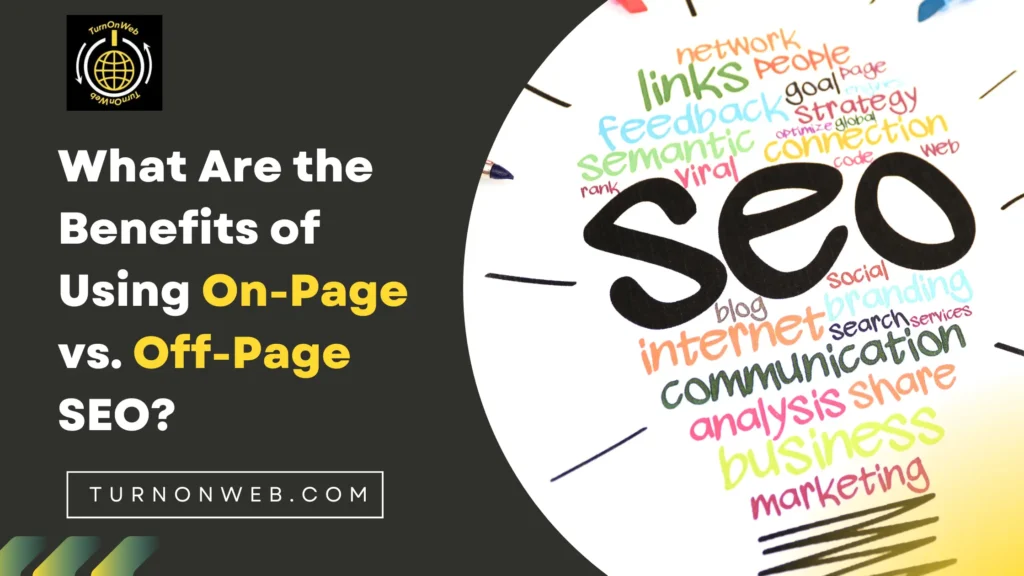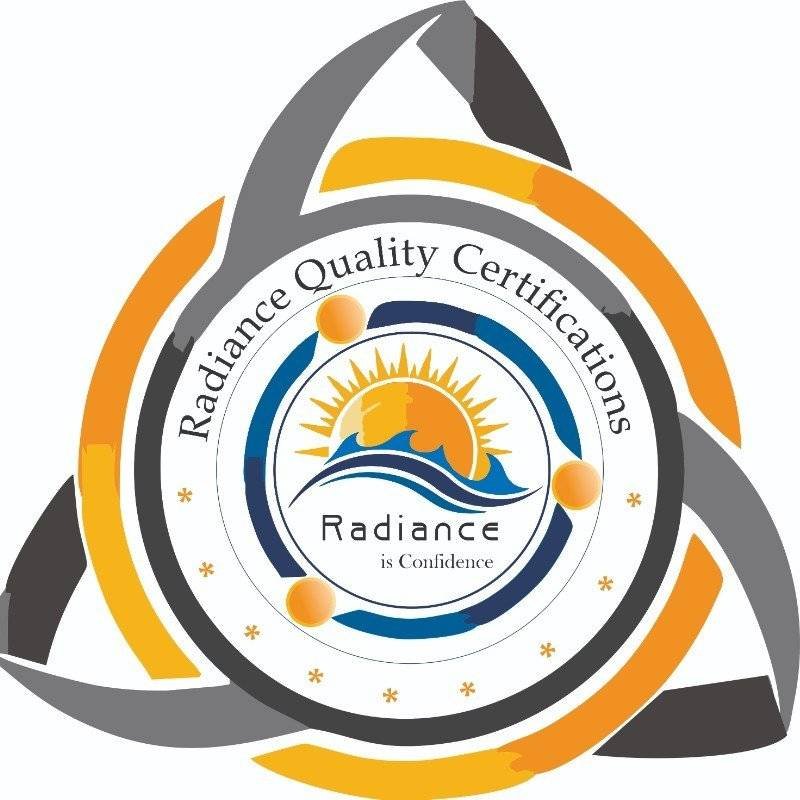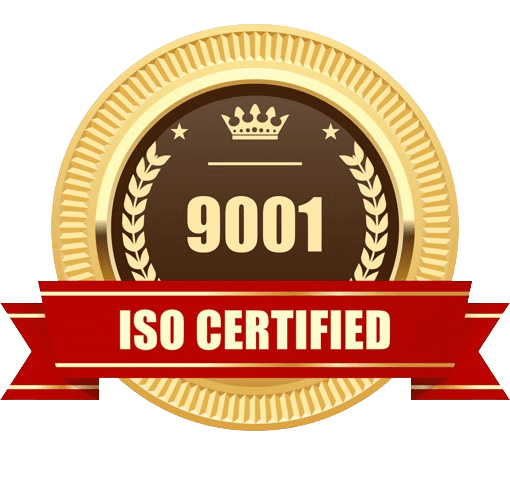What Are the Benefits of Using On-Page vs. Off-Page SEO?

In the dynamic world of digital marketing, SEO stands as a pivotal mechanism for businesses aiming to boost their online presence and attract more traffic to their websites. However, SEO is not a monolith; it splits into two critical areas – on-page and off-page SEO. Each plays a unique role in propelling a website’s search engine rankings, yet they require different strategies and attention to detail.
This guide will dissect the distinctions, benefits, and strategic considerations of on-page versus off-page SEO, offering small business owners, digital marketers, and startups a clear path to optimizing their online efforts.
What is On-Page SEO?
On-page SEO refers to the strategies applied directly to your website to improve its position in the search engine rankings. This encompasses content elements, site architecture, and HTML elements. Here’s how you can optimize for on-page SEO:
Example Tactic – Finding Relevant Subtopics
One effective on-page SEO technique involves identifying and covering a range of relevant subtopics within your content. This not only enriches the content’s value but also signals to search engines the breadth and depth of your website’s information.
What is Off-Page SEO?
Contrastingly, off-page SEO involves the actions taken outside of your own website to impact your rankings within search engine results pages (SERPs). This primarily includes building backlinks but extends to other tactics like social media marketing and influencer outreach.
Example Tactic – Finding Link-Building Prospects
A key off-page SEO strategy is to identify and reach out to potential link-building partners. This could be websites within your industry that share a complementary, not competitive, audience.
Why are On-Page SEO and Off-Page SEO Important?
Both on-page and off-page SEO are crucial for a website’s search engine success. On-page SEO makes your site more user-friendly and relevant to search queries, while off-page SEO enhances its authority and trustworthiness. Together, they provide a comprehensive approach to SEO that can significantly improve your site’s visibility and ranking.
Learn about why Local SEO is important for small businesses.
What Factors Impact On-Page SEO?
Several factors influence on-page SEO, each contributing to how search engines assess and rank your website.
- Search Intent:
Understanding and aligning content with the user’s search intent is paramount. It ensures that your content meets the needs of your audience and search engines.
- Content Quality:
High-quality, original content is vital. It should provide value to your readers, incorporating the relevant subtopics and keywords naturally.
- URLs, Page Titles, and Meta Descriptions:
URLs should be concise and include keywords. Page titles and meta descriptions also need to be optimized to improve click-through rates from SERPs.
- Outbound Links, Schema Markup, and Internal Links:
Linking to reputable sites can boost your site’s credibility, while schema markup helps search engines understand your content. Internal linking, meanwhile, improves navigation and spreads page authority throughout your site.
- Page UX:
User experience (UX) factors, like page speed, mobile-friendliness, and intuitive navigation, directly affect on-page SEO by influencing bounce rates and engagement metrics.
Related:- 5 ways SEO can skyrocket your business
What Factors Impact Off-Page SEO?
Off-page SEO’s effectiveness hinges on several external factors:
- Backlinks
The quality and quantity of backlinks are significant indicators of your site’s authority and trustworthiness to search engines.
- NAP Citations
For local SEO, accurate Name, Address, and Phone number (NAP) citations across the web can enhance visibility in local search results.
- Google Business Profile (Previously Google My Business)
A well-optimized Google Business Profile can improve your business’s visibility in local searches and Google Maps.
- Reviews (and Ratings)
Positive reviews and high ratings, especially on platforms like Google, can significantly influence your site’s perceived trustworthiness and authority.
Long-Term vs. Immediate Results
On-page SEO efforts can yield quicker results because changes are made directly on the website, and their impact can be observed as soon as search engines index these changes. Conversely, off-page SEO, particularly link building, is a longer-term play. The fruits of off-page SEO may take time to manifest as it depends on earning trust and authority from other websites and users.
Importance for Different Businesses
The importance of on-page versus off-page SEO can vary depending on the business type and industry. E-commerce sites, for example, might focus more on on-page SEO to ensure product descriptions and internal linking structures are optimized. In contrast, a local service-based business may prioritize off-page SEO to build local citations and garner positive reviews.
Best Practices and Examples
Successful SEO strategies often involve a blend of on-page and off-page tactics. For on-page SEO, utilizing tools like Yoast SEO for WordPress can help optimize content and HTML elements. For off-page SEO, tactics like guest blogging and engaging with related communities on social media can build backlinks and improve brand visibility. You can also take a guide on SEO hacks.
Cost and Resource Implications
Implementing on-page SEO is generally less costly and requires fewer external resources than off-page SEO, which may involve outreach, content creation for other sites, and potentially paid services for link building or influencer marketing.
Conclusion
While on-page and off-page SEO serve different functions, their end goal is the same – to improve your website’s search engine ranking, visibility, and traffic. For most businesses, a balanced approach that incorporates both on-page and off-page SEO strategies will be the most effective. Start with solid on-page SEO to ensure your site is optimized and user-friendly, then gradually build your off-page SEO efforts to enhance your site’s authority and reputation. Remember, SEO is a marathon, not a sprint. Patience, persistence, and continuous optimization are key to achieving long-term success.
TurnOnWeb, a website development and SEO company in Pune can help you achieve your SEO goals. Contact Now
People Also Ask
1. Is off-page SEO still effective for SEO?
Yes, off-page SEO is still a crucial aspect of SEO. It involves activities done outside of your website to improve its search engine rankings.
2. Which is more necessary – on-page or off-page SEO for ranking?
Both on-page and off-page SEO are essential for ranking. On-page SEO focuses on optimizing the content and structure of your website, while off-page SEO involves building backlinks and increasing your site’s authority.
3. What is an example of off-page SEO?
Google is a search engine, not an example of SEO. SEO stands for Search Engine Optimization, which refers to the strategies and techniques used to improve a website’s visibility in search engine results pages.
4. Is Google an example of SEO?
Google is a search engine, not an example of SEO. SEO stands for Search Engine Optimization, which refers to the strategies and techniques used to improve a website’s visibility in search engine results pages.
5. Is social media part of off-page SEO?
Yes, social media can be part of off-page SEO. Sharing your website’s content on social media platforms can help drive traffic to your site and increase its authority in the eyes of search engines.
- QUICK LINKS
TurnOnWeb Solutions - Zoho's Partner
- QUICK LINKES
- SERVICES




